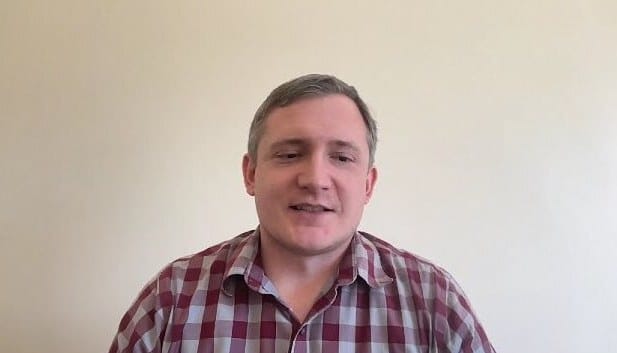At Revitalize Mental Health PLLC, Daniel Gospodarek, a licensed clinical social worker, offers Eye Movement Desensitization and Reprocessing (EMDR) therapy, a transformative approach to mental health treatment. This evidence-based therapy helps individuals process traumatic or overwhelming experiences while also alleviating emotional distress and promoting healing.
Whether you’re dealing with post-traumatic stress disorder (PTSD), panic disorder, or other trauma-related challenges, EMDR therapy can be a powerful solution for finding relief and improving your well-being.
Eye Movement Desensitization and Reprocessing
EMDR therapy is an efficacious form of therapy that is rapidly gaining evidence-based research to treat a range of mental health challenges. These illnesses include but are not limited to: trauma-related disorders, including post-traumatic stress disorder (PTSD), self-harm, depression, anxiety, and substance use addiction. EMDR was developed by Francine Shapiro in the late 1980s.

How Does EMDR Therapy Help?
EMDR targets dysfunctional thought processes or material a person has stored in their body related to past trauma event(s) or situation(s) in their lives. Thought processes such as, ‘I am a bad person’ or ‘I should have done better’ are examples of dysfunctional thought processes. Dysfunctional material may include: guilt or shame around something you could not influence, humiliation from a certain event, or body tension from a stressful experience, i.e., a car accident. EMDR has the ability to target these challenges by allowing one’s body and nervous system to integrate and resolve blocked channels to restore equilibrium in one’s body.

The Eight Phases of EMDR
- The first phase is history taking, which assists clinicians in learning about a person’s attachment pattern, early childhood trauma, and stressors, gathering pertinent assessment data such as cultural and socioeconomic status and a person’s innate ability to manage distress.
- Phase two is all about developing a person’s ability to self-regulate their nervous system when it becomes hyper- or hypo-aroused to maintain a dual awareness (See the next paragraph for more on dual awareness).
- Phases three through six are where treatment targets are identified, prioritized, and desensitized (reprocessed) as the person engages in various Bilateral Stimulation (BLS) clinician-led exercises.
- After treatment targets have been desensitized, phase seven can begin, where a person keeps a journal or list of stressors that arise for future targeting in between sessions.
- Phase eight is the termination part of EMDR, where the client and therapist discuss the progress made throughout therapy, what current variables increase the person’s stress, and how to manage future stressors in their life.
Often, people seek therapy for multiple traumatic events or chronic traumatization. In this case, after a treatment target is reprocessed and closed, we'll return to the lets of treatment targets to continue the healing process.
Dual Awareness

The skill of dual awareness relates to a person’s ability to tap into past memories and stay in the present moment. This allows for the person in EMDR therapy to notice past trauma details while staying present in the therapy session. Dual awareness protects a person from becoming emotionally flooded or overwhelmed while engaged in EMDR desensitization (reprocessing). Some people develop this skill easily, while others may have some challenges with it. EMDR therapy is a process, not a race.
What is an EMDR Therapy Intensive?
EMDR therapy has been empirically shown to reduce trauma, Post-Traumatic Stress Disorder (PTSD), and Complex Post-Traumatic Stress Disorder (C-PTSD)symptoms. There are eight phases within the EMDR protocol. These phases are usually delivered in multiple 50-to-90-minute individual sessions.
EMDR Intensives combine the first three phases of EMDR into a 90-minute session, phases four through six (targeting and reprocessing) are delivered in a four-hour session, and then there is a follow-up 90-minute session to conclude the intensive.
An EMDR Intensive can be a great fit for those who have experienced various forms of trauma and are eager to jump-start their healing process. Due to the timeframes associated with the intensive months of work will be covered within one intensive.
How Can an EMDR Therapy Intensive Help Me?
An EMDR Intensive is the standard EMDR therapy protocol combined into three long sessions. The dose of EMDR treatment in these sessions may help to resolve different forms of trauma including:
- Unexpected loss of a loved one
- Sexual abuse or rape
- Combat trauma
- Near-death experience
- Witnessing someone die unexpectedly
This form of EMDR therapy may assist you with rapidly decreasing symptoms associated with traumatic events. Below is a short list of symptoms EMDR therapy can target:
- Guilt and shame
- Survivors guilt
- Greif and loss
- Avoidance
- Hypervigilance
- Negative thoughts about yourself
- Anger and irritability
- Numbness to life
- Out-of-control emotions
Who Can Benefit From an EMDR Therapy Intensive?
This form of EMDR therapy can be delivered and tailored to most people’s experiences. You may be a good fit for EMDR intensives if you are:
- A busy adult
- Need a rapid reduction in trauma symptoms
- Are eager to start the healing process
- Have time to recuperate after EMDR sessions
Do EMDR Intensives Work?
Although nothing can be guaranteed. EMDR intensives do not deviate from the standard EMDR therapy protocol. The intensives simply condense the timeframe in which the psychotherapy is delivered. Thus, the research on EMDR therapy still applies. Some factors that may impact EMDR intensive outcomes are:
- The level of avoidance, escape, and control (LINK to avoidance, escape, and control blog) one has related to symptoms
- Severity and duration of past traumatic situations
- Their willingness and curiosity about how EMDR can benefit them
- Their commitment to the recovery process
What Happens if the EMDR Intensive Doesn’t Work?
Great question. We cannot guarantee results other than what the research shows. If the intensive has had a positive impact. A person can schedule another EMDR intensive to continue the healing process or change to weekly sessions. It is entirely up to the person and their wants and desired outcomes.

FAQs
Can EMDR Be Combined With Other Forms of Therapy?
Yes, EMDR can be combined with other forms of therapy. To enhance treatment outcomes, many therapists integrate EMDR with approaches like:
- Somatic Experiencing Therapy - Somatic webpage
- Ego States or Parts Work - Link to EGO State Blog
- Internal Family Systems
- Sensorimotor Therapy
By combining EMDR with other modalities, you may benefit from a more extensive treatment plan that addresses various aspects of their mental health. This tailored approach allows therapists to meet the specific needs of each individual. It ensures clients receive the most effective care possible for their unique circumstances.
How Do I Prepare for an EMDR Intensive Session?
Preparing for an EMDR intensive session involves both emotional and practical readiness. Clients should have a clear understanding of their treatment goals. Self-care practices such as relaxation exercises, adequate sleep, and hydration are also recommended. Bringing a journal or having a quiet place for reflection post-session can help you manage emotions afterward as well.
How Should I Manage My Emotional Health Between EMDR Sessions?
Between EMDR sessions, engaging in self-care and practicing mindfulness can be helpful.
Journaling, meditation, or breathing exercises can help manage emotional responses. Finding a support system and maintaining a healthy routine can also ease the emotional strain between sessions as well.
Can I Do EMDR Therapy Virtually, and How Does That Compare To In-Person Sessions?
Yes, EMDR therapy can be conducted virtually through secure video sessions. Many people find virtual EMDR to be just as effective as in-person therapy – as long as they feel comfortable with the online format. The key to successful virtual EMDR is ensuring a private, distraction-free environment where you can focus.
What Does the Follow-up Session After an EMDR Intensive Involve?
The follow-up session after an EMDR intensive typically involves discussing the progress made during the intensive and evaluating how you are processing the material.
The therapist may check in on any emotional or physical responses experienced since the intensive and address any concerns you may have. Adjustments to future sessions, if needed, will be discussed during this appointment to ensure continued progress.
The follow-up also provides an opportunity for additional therapeutic support and guidance as you integrate the intensive work into their daily life.

Why Choose Revitalize Mental Health PLLC?
Revitalize Mental Health PLLC is run by Daniel Gospodarek, a licensed clinical social worker specializing in EMDR therapy. He serves a wide range of individuals, including men, military personnel, first responders, and those affected by traumatic brain injury (TBI).
Offering in-person sessions for those living in the Southern Milwaukee region, and virtual therapy for those in Colorado or living outside of driving distance to Kenosha, WI. Daniel brings a wealth of expertise in addressing trauma and emotional challenges unique to these populations. His compassionate, tailored approach helps individuals process their experiences, heal, and regain emotional strength.
Schedule an EMDR or EMDR Intensive Appointment in Kenosha, Wisconsin
Submit our contact form or call us at 720.295.6703 to schedule a free 20-minute consultation to see how an EMDR intensive can benefit you.




